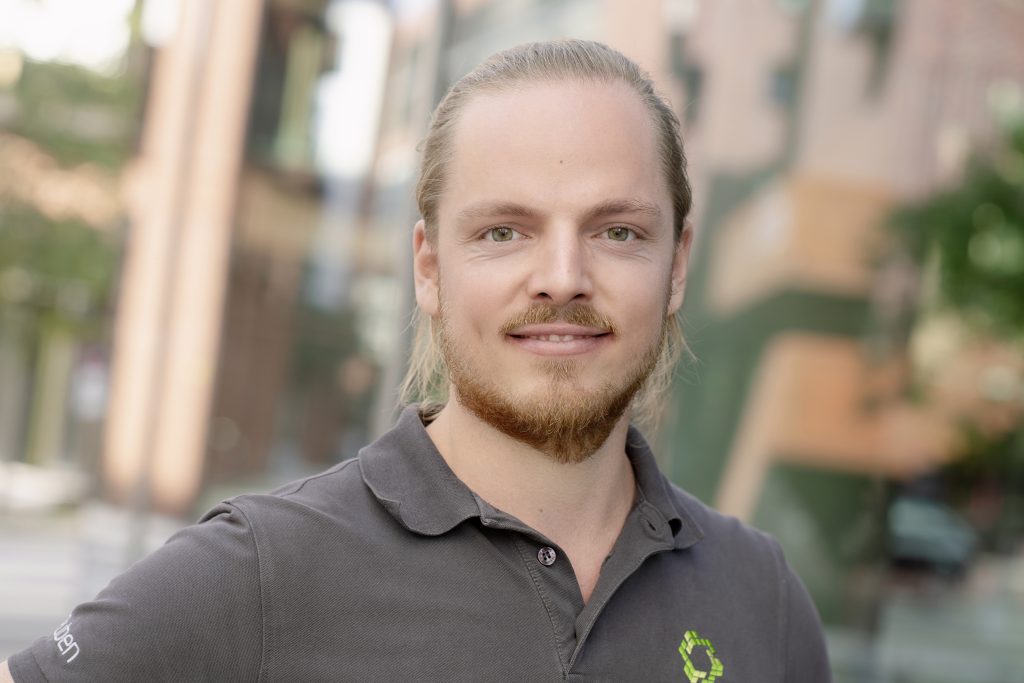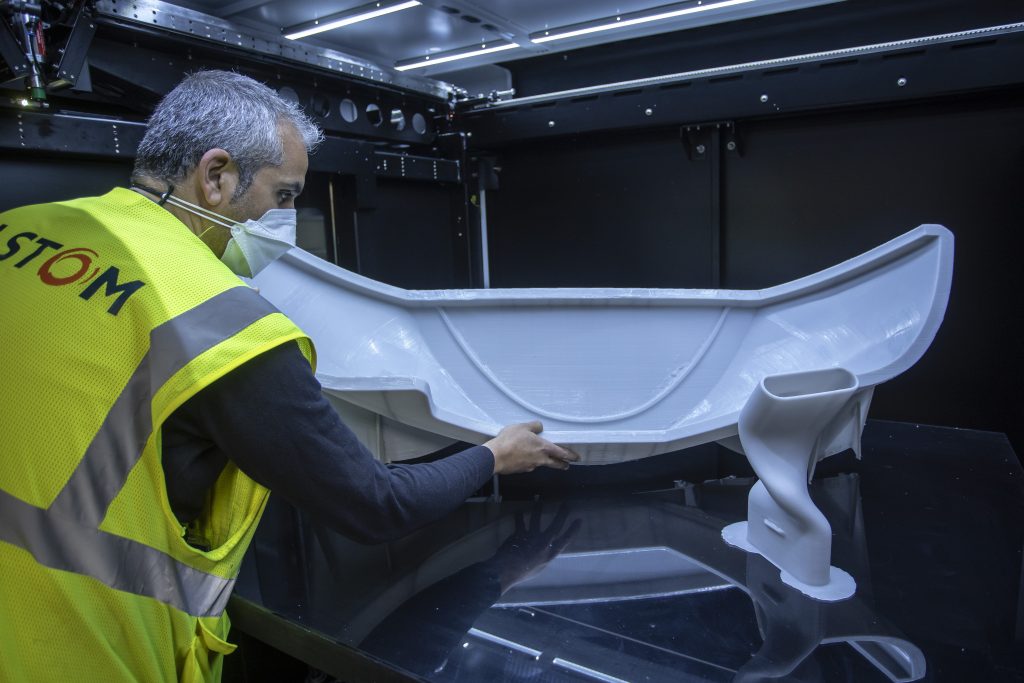German software developer 3D Spark has extended its partnership with France-based rolling stock company Alstom by three years.
Through this collaboration, the railway manufacturer leverages 3D Spark’s software-as-a-service to optimize the production and procurement of spare parts with additive manufacturing.
3D Spark software employs artificial intelligence (AI) to identify the fastest, cheapest, and most sustainable manufacturing process for a part. It also automatically generates quotes and requests for quotations (RFQ).
This digital platform meets demand within the railway market, with leading operators in the space wanting at least 10% of their train parts to be 3D printable. These spare parts can be stored in digital warehouses and fabricated on demand, making supply chains more efficient and environmentally sustainable.
The partnership with Alstom has enabled more than €15 million in cost savings and reduced Alstom’s lead time by 2,600 months. The software has also allowed the company to decrease its procurement efforts by 86%, increasing the availability of spare parts.
With 3D Spark, Alstom has expanded its DesigntoPrint initiative. This program enables over 170 industrial customers to identify the cheapest, fastest, and most sustainable manufacturing options.
“In an industry where trains endure up to 50 years on railway tracks, addressing spare parts and obsolescence challenges is paramount for reliability and punctuality,” commented Ruben Meuth, Co-founder, and CEO of 3D Spark. “This three-year contract renewal with Alstom solidifies our shared vision for a sustainable digital manufacturing future in the railway sector.”

3D Spark’s software enhances railway manufacturing
3D Spark’s software has reportedly enabled Alstem to achieve time and cost savings when checking the manufacturability of parts. The platform has resulted in an 80% time reduction for manufacturability checks (DfM) and quoting of parts. In turn, this has decreased the number of part iterations, interactions with suppliers, and supply bottlenecks. Alstom has also been able to more efficiently identify parts that can be manufactured in-house, resulting in better capacity utilization of its manufacturing hardware.
For the procurement of parts, 3D Spark’s software offers ‘make or buy’ decision support. This feature evaluates and compares the cost of in-house manufacturing against the purchase prices and delivery time of parts, determining which option is more cost-effective.
When users determine that purchasing parts is the most viable option, they can use the platform’s “Supplier Panel.” This provides a complete list of qualified suppliers and incorporates manufacturing assessment, automated target pricing, and the ability to send RFQs with the single click of a button. According to 3D Spark, this feature has reduced part purchase prices by 20%.
A key element of 3D Spark and Alstom’s partnership is environmental sustainability and the goal of reducing CO2 emissions. To achieve this goal, the partnership has seen 3D Spark introduce an automatic CO2 footprint calculator into its software.
This calculator covers polymer, metal, and ceramic 3D printing processes, and enables companies to align with European Union sustainability directives such as the CSRD and CBAM. As such, the tool can reportedly allow users to save €80-100 per ton in certificate costs. As sustainability regulations evolve, 3D Spark expects these savings to increase.
“Our collaboration with 3D Spark has been a key factor in Alstom’s achievements in additive manufacturing and the success of our DesignToPrint program,” added Alston’s 3D Printing Program Manager Aurélien Fussel. “This partnership not only supports our innovation goals but also participates in our commitment to sustainability and operational efficiency. We look forward to furthering our leadership in the industry and setting new benchmarks for excellence in digital manufacturing.”

3D printing software enables on-demand manufacturing
As manufacturers look to secure their supply chains amid global threats to shipping, 3D printing is being increasingly adopted for the production of spare parts that can be stored in digital warehouses and produced when they are needed.
Global manufacturing marketplace Xometry includes over 10,000 global suppliers and offers quick quotes through its Instant Quoting Engine. In 2021, the company acquired Thomas, a product sourcing, supplier selection, and digital marketing leader, in a $300 million deal.
Last year, Philadelphia-based 3D printing software developer Authentise released its automated request for quotes tool called RFQ Responder. This digital platform aims to make the RFQ process quicker and more efficient by automatically generating key design data and prices. RFQ Responder provides automated quotes as a baseline, which can be manually adjusted to identify the manufacturer’s technology and production process requirements.
Elsewhere, On-demand manufacturing software provider 3YOURMIND has previously collaborated with material experts Arkema to produce ‘East 3D.’ This online materials platform aims to streamline the process of requesting parts by linking Arkema customers directly to a network of suppliers. The digital tool also features automatic price estimates and shortens the order-to-production timeline.
Similarly, Israeli start-up Jiga launched its digital manufacturing marketplace in 2021. This platform was designed to create and ship parts three times faster than with in-house production. The company claims that this service saves users 96 hours each year, offering a 34% reduction in lead times and 85% purchase order cycle time reductions.
What does the future of 3D printing hold?
What near-term 3D printing trends have been highlighted by industry experts?
Subscribe to the 3D Printing Industry newsletter to keep up to date with the latest 3D printing news.
You can also follow us on Twitter, like our Facebook page, and subscribe to the 3D Printing Industry Youtube channel to access more exclusive content.
Featured image shows an Alstom employee working on a 3D printed part. Photo via Alstom.

